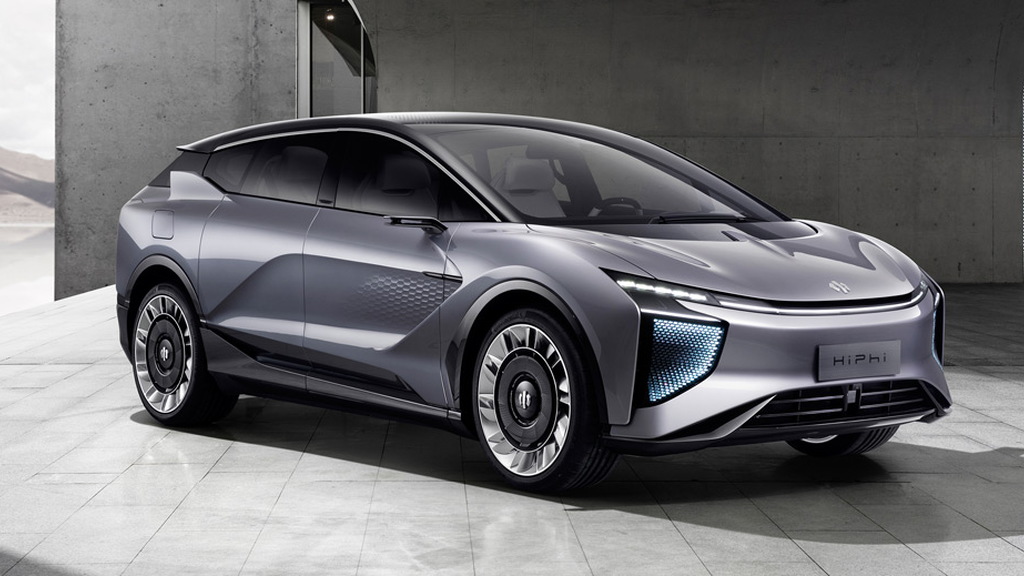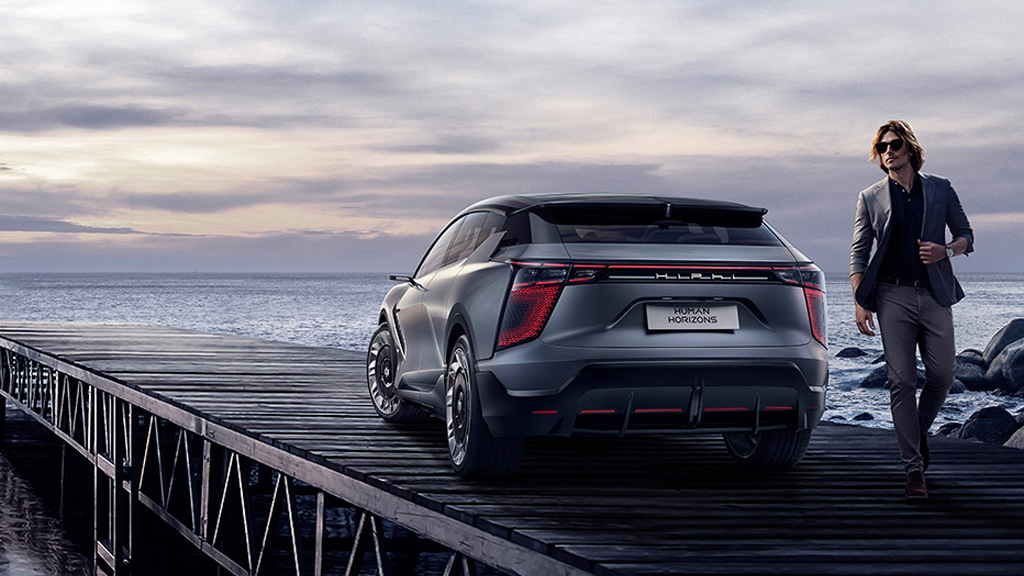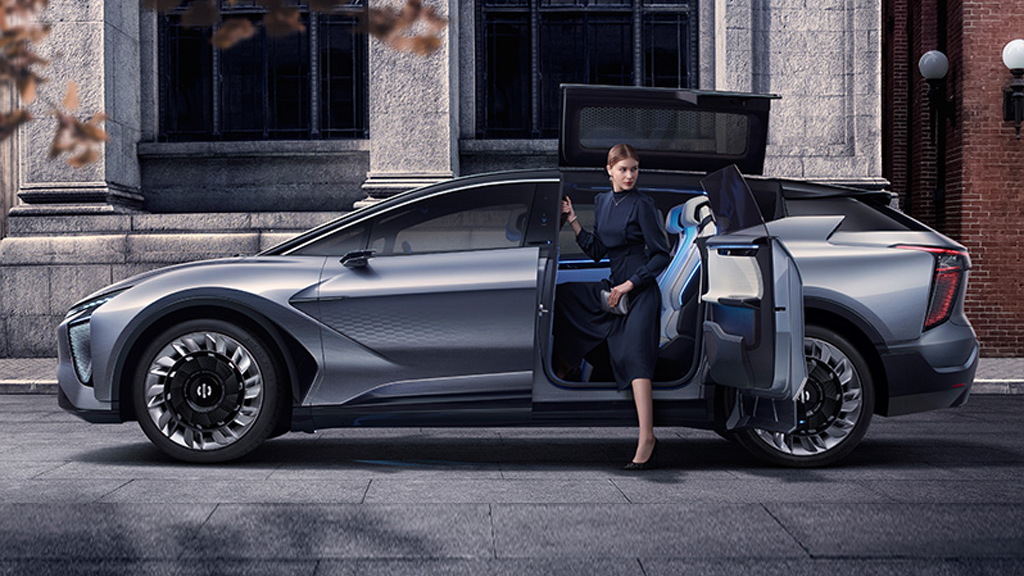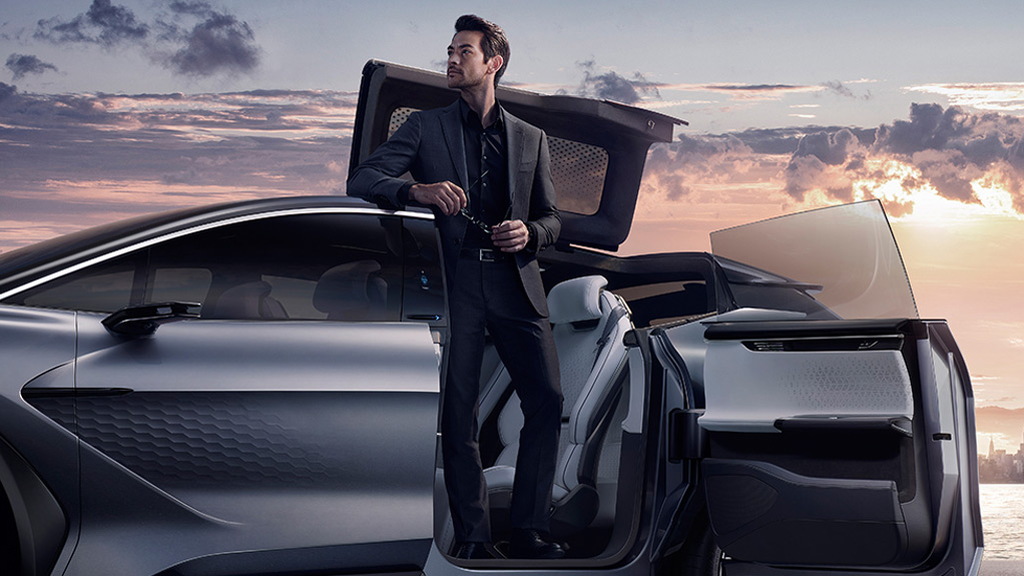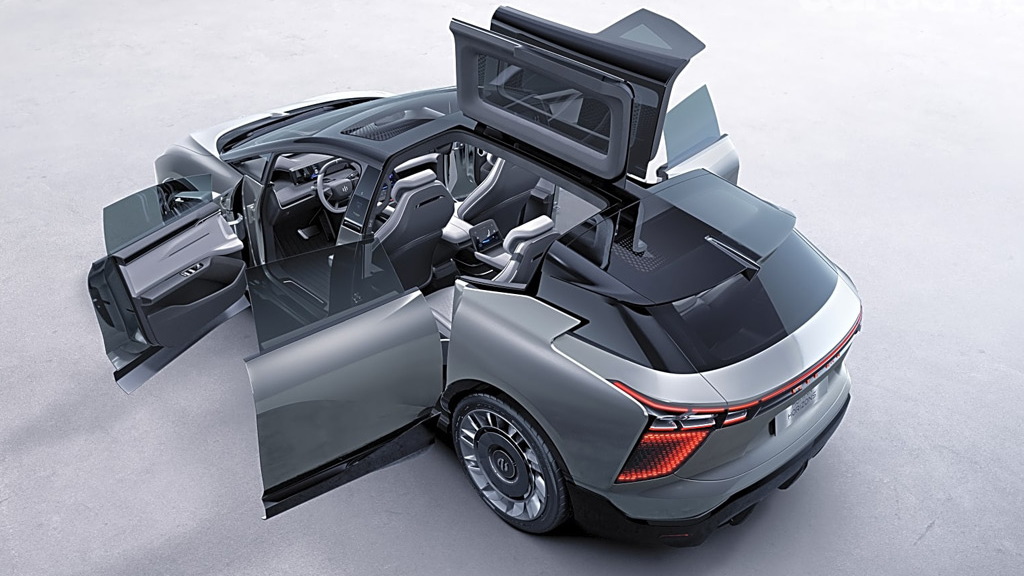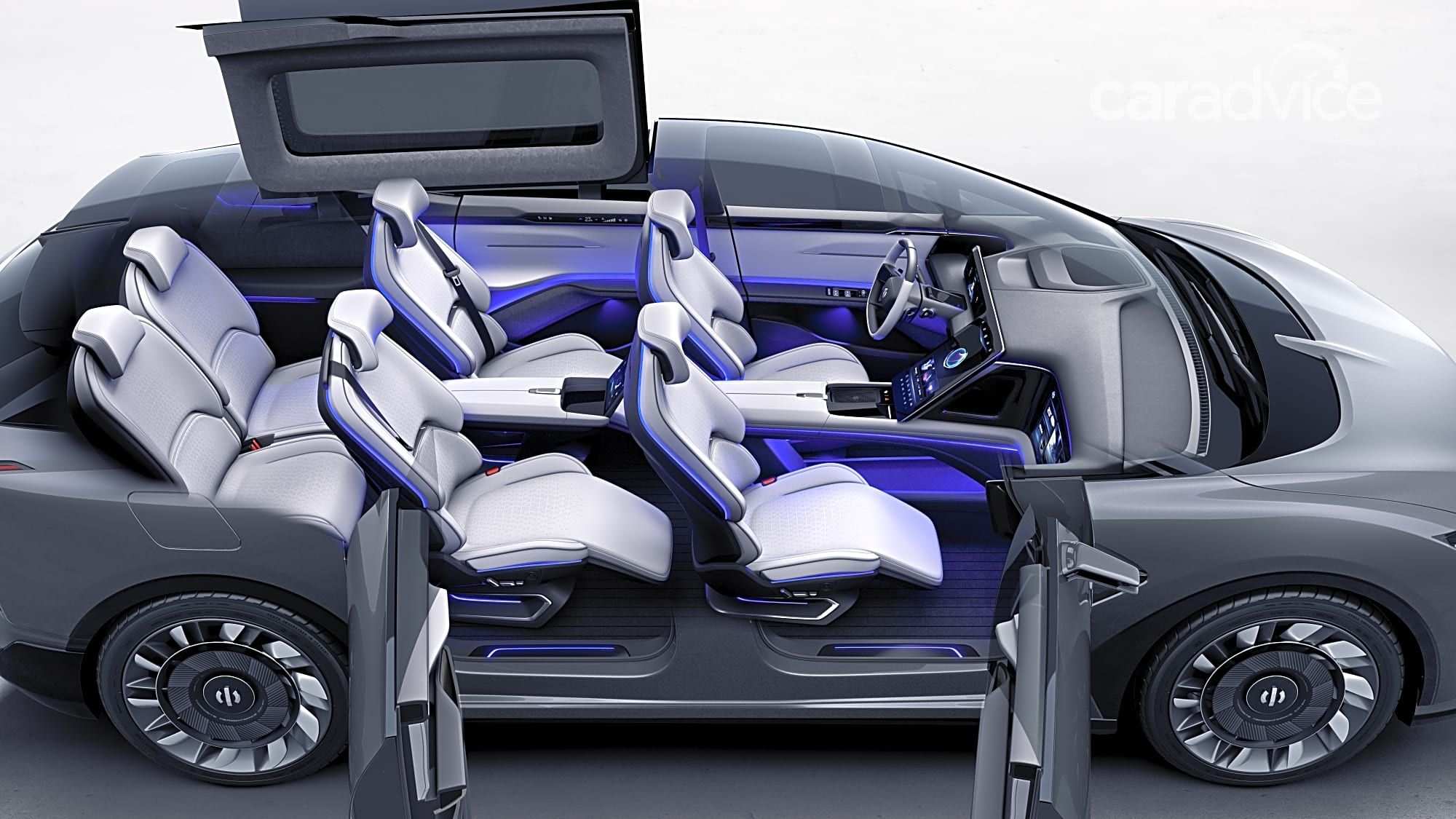A Chinese EV startup by the name of Human Horizons, whose technical team is led by the former head of Jaguar Land Rover’s Special Vehicle Operations division, Mark Stanton, provided a preview last week of its first planned model in the form of the HiPhi 1 concept.
Stanton is serving as chief technical officer at Human Horizons. He reports to chairman and co-founder Ding Lei who previously had senior roles at Ford and General Motors in China.
The HiPhi 1 concept is a battery-electric crossover whose design looks like a blend of the Faraday Future FF91 and the China-only Buick Velite 6. The company has also incorporated its own take on the Tesla Model X's falcon wing doors. On the HiPhi 1, the designers went with a combination of a gullwing door (more of a flap, really) and rear-opening door.
Inside, there are six seats spread over three rows, with an extended center console spanning the first two rows. A fully digital dash sits up front, with a digital instrument cluster providing the vital info and a large, Tesla-style vertical screen serving as the infotainment hub. A third screen is positioned for use by a front passenger.

Human Horizons HiPhi 1 concept
A flat battery sits in the floor and powers an electric motor mounted at each axle. Each electric motor delivers a peak 268 horsepower, and for production the company will likely offer only a single motor at the rear axle as standard.
Human Horizons said the planned production version will closely resemble the HiPhi 1 concept, though some elements won't appear. One example will be the cameras that replace side mirrors on the concept, a feature which isn't legal in China just yet.

Human Horizons HiPhi 1 concept
It also remains to be seen what other technologies previewed on the concept will make it to production. Human Horizons said the concept features 5G connectivity and a self-driving system that uses 562 sensors. The number is a lot higher than with most current self-driving systems, as Human Horizons' system is designed to track and monitor much more of the surrounding environment, including driver behavior, surrounding Internet-connected infrastructure, and public transport systems.
Human Horizons wants its vehicles to be a node within smart cities, remaining permanently connected, digitally, with their surroundings. This will be particularly crucial for self-driving cars, which will constantly load and download information about their surroundings.
